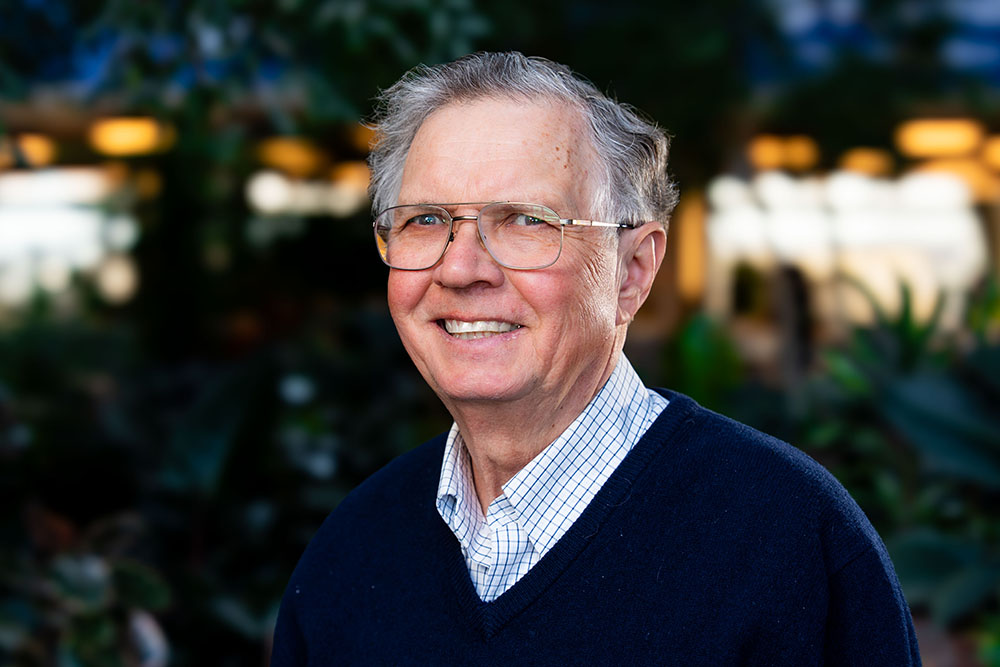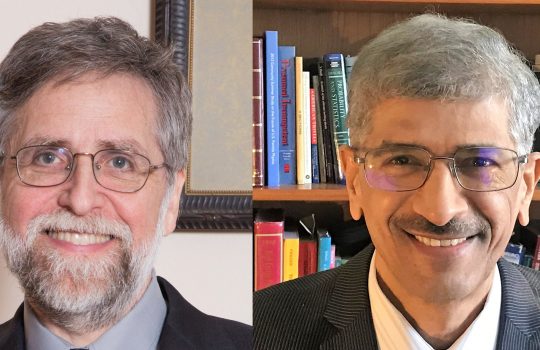Fermi National Acceleratory Laboratory senior scientists Peter Garbincius and Robert Zwaska have been elected Fellows of the American Association for the Advancement of Science, one of the world’s largest and most prestigious scientific societies. This honor recognized their significant contributions to particle physics and accelerator technology.
Garbincius was named an AAAS Fellow for his “distinguished contributions to particle physics, both as a researcher and manager, and for leadership in outreach programs.” Zwaska was honored for his “distinguished contributions to high-energy accelerator technology, especially high-power targetry.”
Each year, the AAAS Council elects new fellows, celebrating individuals in the science community who made scientifically or socially distinguished efforts to advance science and its applications. In addition to being a professional society, AAAS publishes the influential Science journals.
Peter Garbincius

Fermilab scientist emeritus Peter Garbincius worked as a researcher and leader at the laboratory from 1976 to 2020. Throughout his career, he collaborated on particle physics experiments with fixed-target hadron and photon beams, and in proton-antiproton collisions. The experiments focused on the production, decay and properties of elementary particles containing light, charm and bottom quarks, as well as exotic four-quark mesons.
Garbincius held various leadership roles across Fermilab’s Research Division, Accelerator Division and Directorate. He also made a lasting impact through scientific outreach, leading the Ask-a-Scientist program, which provided visitors to Fermilab with information about the lab’s groundbreaking research. The program offered informal lectures, laboratory tours and one-on-one discussions with subject matter experts.
“This award doesn’t just celebrate my achievements, it also belongs to the entire Fermilab family,” said Garbincius. “I’m thankful to everyone with whom I worked, including my mentors, colleagues, collaborators, as well as the Fermilab support staff and the users and affiliates community.”
Robert Zwaska

Robert Zwaska, senior scientist and division director for Fermilab’s Accelerator Complex Technology Division, first came to Fermilab in 2000 for research during his graduate studies at the University of Texas at Austin. As a Fermilab user, he participated in MINOS, an experiment designed to study neutrino oscillations, and the Neutrinos at the Main Injector beamline project, where he worked on muon detectors and synchronization between accelerators that enabled the NuMI beam. Zwaska was hired by Fermilab in 2005.
In 2011, Zwaska worked on the Proton Improvement Plan, which significantly upgraded Fermilab’s booster ring — improving both its efficiency and reliability to support major experiments such as NOvA and Muon g-2.
Alongside others, Zwaska founded the Target Systems Department in 2015, which focuses on the development and improvement of particle accelerator target systems. Target systems are the beamline devices that convert high-energy protons into subatomic particles for study.
He is currently directing the Accelerator Complex Technology Division, which develops and maintains the accelerator systems at Fermilab Accelerator Complex. Zwaska’s team supports major projects, such as Proton Improvement Plan-II, the Long Baseline Neutrino Facility and the Accelerator Controls Operations Research Network, or ACORN.
Throughout his career, Zwaska has contributed to scientific outreach and education efforts, teaching for the United States Particle Accelerator School program and participating in the Ask-a-Scientist program.
“I’d like to thank my colleagues for, in their discretionary time, nominating me,” said Zwaska. “It’s gratifying that this fellowship is the result of people in this community taking time out of their day.”
Fermi National Accelerator Laboratory is America’s premier national laboratory for particle physics and accelerator research. Fermi Forward Discovery Group manages Fermilab for the U.S. Department of Energy Office of Science. Visit Fermilab’s website at www.fnal.gov and follow us on social media.

